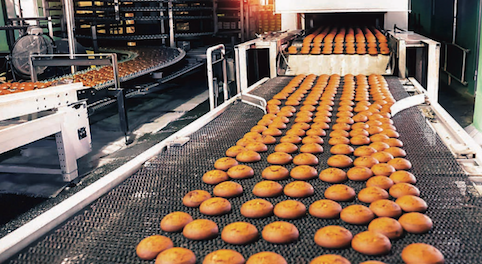Inside BENEO’s new pulse plant: pioneering sustainable protein from faba beans
Research on the role of nutrition in complex non-communicable chronic diseases such as cardiovascular disease, diabetes, obesity, and cancers, and communicable diseases such as tuberculosis, COVID-19, flu, among others, is gradually increasing in India. However, there is not enough implementation of such research taking place due to lack of facilities, limited data interpretation, less trained workforce etc. Since nutrition is very specific for individual physiology, we must utilise the power of R&D to understand the nutritional requirements of the human body to fight off diseases. As 2022 sets in, we hope for sufficient research and investment in various fields related to food and nutrition for strengthening the healthcare system in India.
India is plagued by malnutrition, high incidence of non-communicable diseases (NCDs), metabolic syndromes and emerging new infections. In addition, the prevalence of stunting and wasting in the country is unfortunately one of the worst in the world. Both under-nutrition and overnutrition are well documented to have a wide impact on human growth leading to neurocognitive deficits in children and obesity, diabetes and cardiovascular diseases in adults.
However, the impact of pre-clinical and clinical research, aimed at investigating and understanding the detrimental effects of both under-nutrition and overnutrition, has remained poorly evaluated due to lack of facilities to assess parameters such as uptake and utilisation of macro- and micronutrients, differential energetic contributions of carbohydrates, proteins and fats especially those derived from native or fortified varieties of supplements, etc.
India is in dire need of establishing facilities and laboratories within the public and private sector, well-dedicated to nutrition and food science research, in order to develop natural solutions towards treating numerous communicable and non-communicable diseases. The idea of food as a medicine is now evolving as an absolute essentiality to our healthcare system, rather than relying solely on expensive drugs with side-effects.
In this context, the Department of Atomic Energy and Tata Institute of Fundamental Research (TIFR) has recently proposed to establish a state-of-the-art national facility in Hyderabad that will enable and facilitate research on nutrition and metabolism, and support R&D efforts to tackle non-communicable diseases (NCDs) and malnutrition in the country. One of the key deliverables of this facility will be to establish a Stable-Isotope Methods and Imaging for Analytics in Nutrition Science (SIMIANS) platform in close association with Mumbai-based Bhabha Atomic Research Centre (BARC).
A similar initiative has been taken by the Council of Scientific and Industrial Research (CSIR), in collaboration with Bill & Melinda Gates Foundation for researching and developing novel microbiome-directed foods for the country. A year before, CSIR had announced another collaboration with the Food Safety and Standards Authority of India (FSSAI) for research and information dissemination in the area of food and nutrition.
For improving the nutritional status of women and children, Kerala is launching a nutrition research centre in collaboration with Haryana-based National Institute of Food Technology Entrepreneurship and Management (NIFTEM), as part of Sampushta Keralam, a project being implemented by the Department of Women and Child Development (WCD), under the National Nutrition Mission.
Within the private sector, Mumbai-based startup Esperer Nutrition (EON) has opened India’s first cancer nutrition research centre in Hyderabad. The one of its kind nutrition research centre aims to narrow down the growing concerns with the idea to improve the quality of life of cancer patients by conducting rigorous field and lab studies in order to find a concrete solution.
Noida-based startup Vedas Cure has also recently strengthened comprehensive research and development on ayurvedic formulations to offer more medicines for diabetes, piles, acidity, pigmentation, psoriasis, vitiligo, arthritis, joint pains, and polycystic ovarian disorder.
Adding to the list is Pune-based Institute of Nutrition and Fitness Sciences that has set up a Department of Health Research to promote evidence-based research in nutrition and fitness. This department will be focusing on providing scientific learning, addressing health issues, upgrading the skills of health professionals as well as collaborating with national and international institutes.
Further, the Institute of Nutrition Leadership (INL), based in Hosur, Tamil Nadu, has collaborated with UK-based Health Sciences Academy to introduce novel concepts of clinical weight loss, advanced fertility nutrition, child development nutrition, exercise nutrition, lifestyle medicine, to name a few.
Of late, Hyderabad-based International Crops Research Institute for the Semi-Arid Tropics (ICRISAT) has been at the forefront in conducting scientific studies on the benefits of millet consumption. Recent studies have shown that eating millets can reduce the risk of developing type 2 diabetes, helps in weight loss, reduces total cholesterol and triglycerides, improves haemoglobin and serum ferritin levels to reduce iron deficiency anaemia.
Many of the food and nutrition related challenges in India can be resolved with more holistic and collaborative research by both public and private sectors using local resources. The results of such R&D would not only address the challenges of diseases being faced, but also strengthen the food safety landscape in the country.
As we step into 2022, we hope for sufficient research in various fields related to food and nutrition that would help the food processing industry in identifying and harnessing innovative methods and techniques of production leading to creation of healthier food products and reducing the carbon footprint in manufacturing process. ‘The doctor of the future will no longer treat the human frame with drugs, but will rather cure and prevent disease with nutrition’- Thomas Edison’s contemplation may soon come to fruition.
With this thought in place, let’s take a look at what plans the food processing industry and related sectors have in store for the New Year!
Dr Manbeena Chawla
(manbeena.chawla@mmactiv.com)

